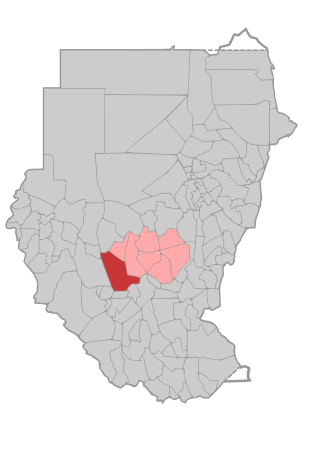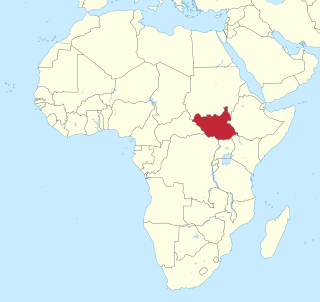
The United Nations Security Council (UNSC) is one of the six principal organs of the United Nations (UN) and is charged with ensuring international peace and security, recommending the admission of new UN members to the General Assembly, and approving any changes to the UN Charter. Its powers as outlined in the United Nations Charter include establishing peacekeeping operations, enacting international sanctions, and authorizing military action. The UNSC is the only UN body with authority to issue resolutions that are binding on member states.

The United Nations General Assembly, UNGA; French: Assemblée générale des Nations unies, AGDNU is one of the six principal organs of the United Nations (UN), serving as its main deliberative, policymaking, and representative organ. Currently in its 79th session, its powers, composition, functions, and procedures are set out in Chapter IV of the United Nations Charter.

The member states of the United Nations comprise 193 sovereign states. The United Nations (UN) is the world's largest intergovernmental organization. All members have equal representation in the UN General Assembly.

The United Nations Mission in the Sudan (UNMIS) was established by the UN Security Council under Resolution 1590 of 24 March 2005, in response to the signing of the Comprehensive Peace Agreement between the government of the Sudan and the Sudan People's Liberation Movement on January 9, 2005, in Sudan.

The Abyei Area is an area of 10,546 km2 or 4,072 sq mi on the border between South Sudan and Sudan that has been accorded "special administrative status" by the 2004 Protocol on the Resolution of the Abyei Conflict in the Comprehensive Peace Agreement (CPA) that ended the Second Sudanese Civil War. The capital of the Abyei Area is Abyei Town. Under the terms of the Abyei Protocol, the Abyei Area is considered, on an interim basis, to be simultaneously part of both the Republic of South Sudan and Republic of Sudan, effectively a condominium.

The presidency of the United Nations Security Council is responsible for leading the United Nations Security Council. It rotates among the fifteen member-states of the council monthly. The head of the country's delegation is known as the president of the United Nations Security Council. The presidency has rotated every month since its establishment in 1946, and the president serves to coordinate actions of the council, decide policy disputes, and sometimes functions as a diplomat or intermediary between conflicting groups.

United Nations Security Council Resolution 1919, adopted unanimously on April 29, 2010, after recalling resolutions 1674 (2006), 1894 (2009) on the protection of civilians in armed conflict, 1612 (2005) and 1882 (2009) on children in armed conflict, 1502 (2003) on the protection of humanitarian and United Nations personnel, and 1325 (2000), 1820 (2008), 1888 (2009), and 1889 (2009) on women, peace, and security, the Council extended the mandate of the United Nations Mission in Sudan (UNMIS) until April 30, 2011 with the intention of renewing it further if necessary.
The Abyei status referendum is a delayed referendum that was originally due to be held in 2011 in which the residents of Abyei can decide either to remain part of the Sudanese South Kordofan region or to become part of the Bahr el Ghazal region of South Sudan.

The United Nations Interim Security Force for Abyei (UNISFA) is a United Nations peacekeeping force in Abyei, which is contested between the Republic of Sudan and the Republic of South Sudan. UNISFA was approved on 27 June 2011 by the United Nations Security Council in United Nations Security Council Resolution 1990 after a flareup in the South Kordofan conflict earlier in June 2011. The Ethiopian Army is the largest contributor of personnel, and as of 2018, the only contributor of individual troops.

United Nations Security Council Resolution 1990, adopted unanimously on June 27, 2011, after recalling all previous resolutions on the situation in Sudan and the Comprehensive Peace Agreement, the Council established the United Nations Interim Security Force for Abyei (UNISFA) in the disputed Abyei region between Sudan and South Sudan.

United Nations Security Council Resolution 1996, adopted unanimously on July 8, 2011, after welcoming the independence of South Sudan from Sudan, the Council established the United Nations Mission in the Republic of South Sudan (UNMISS) for an initial period of one year.
United Nations Security Council Resolution 1997, adopted unanimously on July 11, 2011, after recalling resolutions 1590 (2005), 1627 (2005), 1663 (2006), 1706 (2006), 1709 (2006), 1714 (2006), 1755 (2007), 1812 (2008), 1870 (2009), 1919 (2010) and 1978 (2011) on the situation in Sudan, the Council authorised the withdrawal of the United Nations Mission in Sudan (UNMIS) by August 31, 2011.

United Nations Security Council Resolution 2003, adopted unanimously on July 29, 2011, after reaffirming all previous resolutions and statements on the situation in Sudan, the Council extended the mandate of the African Union – United Nations Hybrid Operation in Darfur (UNAMID) for a further 12 months until July 31, 2012.
United Nations Security Council Resolution 1784 was unanimously adopted on 31 October 2007.
United Nations Security Council Resolution 1870, unanimously adopted on 30 April 2009, extended the mandate of the United Nations Mission in Sudan for another year urging all parties to comply fully with the 2005 Comprehensive Peace Agreement that ended a 21-year civil war between north and south Sudan.

United Nations Security Council Resolution 2024 was unanimously adopted on 14 December 2011.

United Nations Security Council Resolution 2032 was unanimously adopted on December 22 2011 after recalling resolution 1889 (2009). The Council also demanded that Sudan and South Sudan urgently finalize the establishment of the Abyei Area Administration and Police Service in accordance with previous agreements, urging them to make use of the mechanisms that had been developed to resolve outstanding issues related to the borders and the demilitarized zone.
Lieutenant General Tadesse Werede Tesfay is Commander-in Chief of the Tigray Defense Forces. He was born in Mekelle, a city in Enderta woreda of the Tigray Region.

United Nations Security Council Resolution 2047 was unanimously adopted on 17 May 2012.

The United Nations Supervision Mission in Syria (UNSMIS) was a United Nations peacekeeping mission in Syria, set up in 2012 as a result of United Nations Security Council Resolution 2043 in response to the Syrian Civil War. It was commanded by Norwegian Major General Robert Mood until 20 July 2012 followed by Lieutenant General Babacar Gaye from Senegal. Although observers remain in the country, Mood suspended their mission on June 16, 2012, citing "escalating violence". Observers will conduct no further patrols and stay in their current positions until the suspension is lifted. On 20 July 2012, the Security Council extended UNSMIS for a final period of 30 days. According to resolution 2059, the Council would only consider more extensions in the event that the Secretary-General reports and the Security Council confirms the cessation of the use of heavy weapons and a reduction in the level of violence sufficient by all sides to allow UNSMIS to implement its mandate.










